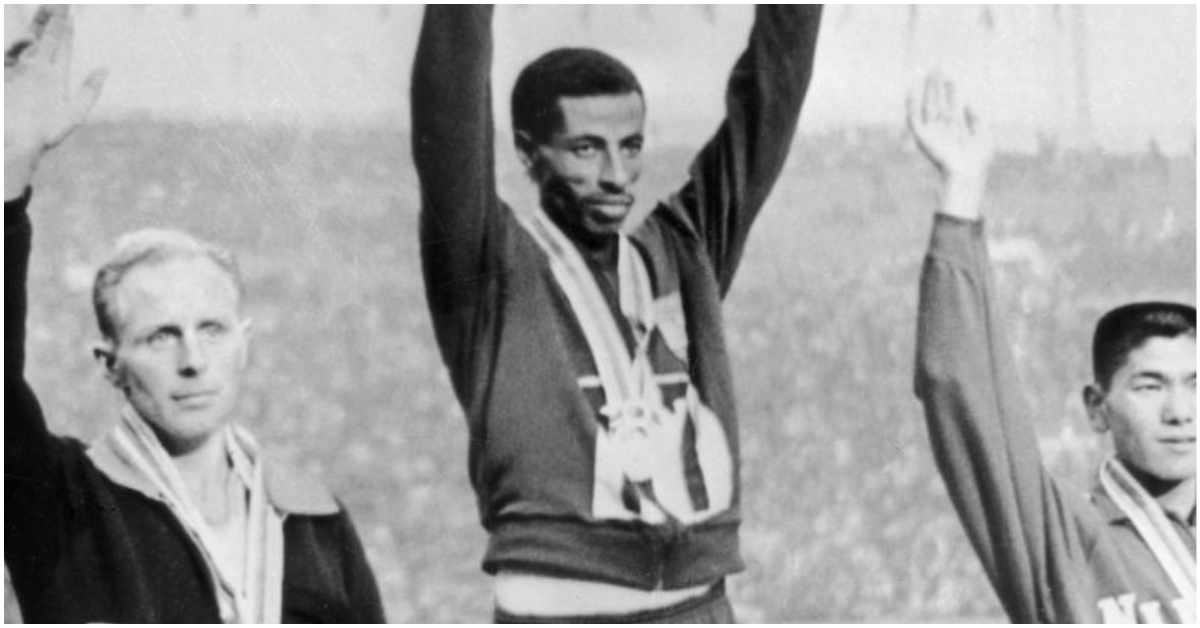Discovered Running Barefoot In The Army
Born in 1932 in rural Ethiopia, Abebe Bikila began running at age 24 during military training. He served in the imperial guard of Emperor Haile Selassie while developing his talent in rugged cross-country runs across the Ethiopian landscape, often running 20 miles barefoot.
In 1960, Bikila made the Ethiopian Olympic team despite his obscurity. Swedish coach Onni Niskanen recognized his potential after witnessing his incredible stamina and speed. As race day approached, Niskanen convinced Bikila he could win Olympic marathon gold.
Last Mile Surge To Victory On The Streets Of Rome
On September 10, 1960, Bikila strode barefoot through the streets of Rome in the Olympic marathon, passing ancient monuments in the evening twilight. He stayed with the lead pack before making his move with just over a mile remaining.
To the shock of the world, Bikila sprinted to victory at the Arch of Constantine in 2:15:16, setting a world record. He became the first Ethiopian to win Olympic gold while announcing the arrival of African distance runners on the global stage. The image of him crossing the finish line, bare feet and triumphant, was beamed around the globe.
Double Gold Cements Legend Status
Bikila proceeded to win marathons across Europe and Asia over the next few years, including a victory in Greece. At the 1964 Tokyo Olympics, he was back to defend his title just 40 days after having his appendix removed.
Wearing shoes this time, Bikila set another Olympic record of 2:12:11 to become the first runner to ever win two Olympic marathons. His late training burst again crushed the competition. At race’s end, he even began celebratory calisthenics as stunned rivals trailed in. An unprecedented athletic achievement was complete.
Career Cut Short, But Enduring Olympic Legacy
Bikila was expected to compete for a third straight gold medal at the 1968 Mexico City Olympics. However, he had to drop out after 10 miles due to a leg injury. His quest to cement an Olympic three-peat was dashed in heartbreaking fashion.
In 1969, Bikila was paralyzed from a car crash, ending his competitive career. But his pioneering Olympic feats already secured his eternal spot in history as Africa’s first great champion of the Games. Through talent and determination, he broke barriers for Black African athletes across all sports to excel on the world’s biggest stage.





